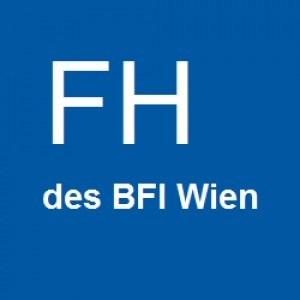Photos of university / #ucl
Economics at University College London offers a comprehensive and rigorous curriculum designed to equip students with a deep understanding of economic theories, principles, and their real-world applications. This programme provides a solid foundation in microeconomics, macroeconomics, and quantitative methods, ensuring students develop analytical skills essential for evaluating economic issues and informing policy decisions. The course covers a wide array of topics, including market dynamics, financial economics, development economics, environmental economics, and international trade, enabling students to explore diverse economic environments and challenges. Delivered by leading academics and industry experts, the programme combines theoretical knowledge with practical skills, fostering critical thinking and problem-solving abilities. Students benefit from state-of-the-art facilities, access to extensive data resources, and opportunities for research projects, internships, and global exchanges. The programme also emphasizes the importance of understanding the ethical and societal implications of economic policies, preparing graduates for careers in finance, consulting, government, research, and international organizations. With a flexible structure, students can tailor their learning through various electives and specializations to align with their interests and career aspirations. The degree aims to produce not only well-informed economists but also versatile thinkers capable of tackling complex issues in a rapidly changing global economy. Graduates of the UCL Economics programme are highly sought after for their analytical prowess, policy insight, and ability to adapt to diverse professional environments. Whether pursuing further academic study or entering the workforce directly, students are equipped to make meaningful contributions to economic development and societal well-being. The programme is designed to challenge and inspire students, fostering a lively academic community committed to economic inquiry and societal progress.
We draw on current research at the Institute of Education and elsewhere to inform our economics teaching and encourage students to engage with recent debates and literature in the field. Our underlying aim is for students to develop as reflective and highly skilled teachers.
Students undertake two level 7 (Master’s-level) modules of 30 credits each, totaling 60 credits. These can be carried forward onto full Master’s programmes at the IOE.
The Secondary PGCE consists of three core modules: two Master’s-level (level 7) modules, which are assessed through written assignments, and the Professional Practice module, which is assessed by the observation of practical teaching in placement schools.
Completion of the Professional Practice module and the two level 7 (Master’s level) modules (60 credits) will result in the award of a Postgraduate Certificate of Education (PGCE). Completion of the Professional Practice module and one or two level 6 (undergraduate/Bachelor’s level) modules, will lead to the Professional Graduate Certificate of Education (PgCE).
Core modules
- Subject Studies - Economics (30 Master's-level credits)
- Wider Educational Studies - Economics (30 Master's-level credits)
- Professional Practice
Placement
Students Teachers undertake at least two placements (totaling 120 days) at a school or college, during which time their teaching practice will be supported by a school subject tutor and mentor. Economics PGCE students will teach Economics to A level, and are likely to teach a second subject at GCSE or Key Stage 3. The Professional Practice module is assessed through these placements, associated tasks and a portfolio.
Teaching and learning
The Secondary PGCE is delivered via keynote lectures, subject lectures, seminars, workshops, tutorials and directed study days at the IOE as well as time spent in placements. Assessment is by practical teaching, assignments and portfolio tasks.
Students will also record their progress in a Career Entry and Development Profile statement. This will form part of an ongoing portfolio charting the student's continuing professional development.
First degree
Normally a minimum of a lower second-class UK Bachelor’s degree or an overseas qualification of an equivalent standard in an Economics-related subject.
GCSEs
English Language and Mathematics at grade C.
School experience
Prospective students must complete a minimum of five days of school experience before they can be enrolled on the Secondary PGCE. This may involve observations, work experience (e.g. as a teaching assistant or cover supervisor), or voluntary work. Applicants must have a minimum of one day's school experience before interview; some subjects will be looking for significantly more than this. Applicants must ensure that their school experience is relevant in helping them to prepare for the Secondary PGCE, during which Student Teachers are placed in a wide range of schools across London and the South East.
DBS and Occupational Health
If you are made an offer you will be required to successfully complete Occupational Health and Disclosure Barring Service (DBS) Enhanced Disclosure checks. The total cost of these checks is £125. These checks are required to ensure you meet the Department for Education’s requirements for physical and mental health to teach, as well as assessing your suitability for access to children and vulnerable adults. More details can be found on the Entry requirements page.
Skills tests
All applicants must successfully complete professional skills tests in literacy and numeracy before they can enrol. More information can be found on the Get Into Teaching website.
Tuition fees for the Economics program at University College London vary depending on the student's nationality and fee status. For home (UK) students, the annual tuition fee is approximately £9,250. International students pay higher fees, typically around £24,200 per year for full-time undergraduate studies in Economics. These fees are subject to annual increases and may differ for postgraduate or specialized streams within the Economics discipline.
UCL offers a range of financial support options for eligible students, including scholarships, bursaries, and loan schemes. The UCL Perspectives Scholarship and the Denys Haydon Scholarship are competitive awards that can significantly offset tuition costs for undergraduate students. For international students, there are also external funding options and government-sponsored loans depending on the student’s country of residence.
Living expenses are a significant part of the total cost of attendance. Students should budget for accommodation, which at UCL’s on-campus halls or private rented accommodation averages around £200-£300 per week. Other expenses include food, transportation, textbooks, and personal expenses, totaling approximately £11,000 to £15,000 per year.
UCL provides assistance with financial planning and often hosts information sessions on funding opportunities. The university encourages prospective students to explore part-time work options available under student visa regulations to support their living costs during their studies.
Postgraduate students in Economics can access different funding routes. UCL offers scholarships like the Bartlett School of Economics funding, which may provide partial or full tuition fee waivers. External funding sources, including research council grants and private sponsors, are also available for postgraduate research students.
Students are advised to apply early for financial aid to maximize their chances of receiving support. The university’s Financial Support Office provides tailored advice on affordability, loan options, and budgeting strategies to ensure students can successfully finance their studies at UCL.
Economics at University College London (UCL) is a rigorous and comprehensive programme designed to provide students with a solid foundation in economic theories, quantitative methods, and real-world applications. The course explores core concepts such as microeconomics, macroeconomics, international economics, and development economics, preparing students for careers in finance, policy analysis, consulting, and academia. The programme emphasizes critical thinking and analytical skills, encouraging students to understand economic models, analyze data, and evaluate economic policies. Students have access to state-of-the-art facilities, including advanced econometrics labs and extensive online resources, to support their learning and research activities. UCL's strong links with industry and government departments offer excellent internship and employment opportunities, allowing students to gain practical experience alongside their studies. The teaching staff comprises leading economists and researchers who actively contribute to current economic debates and policies, enriching the learning environment. The degree typically spans three years for full-time students, with options for a placement year, providing valuable industry exposure. In addition to core modules, students may select from a range of electives, covering specialized areas such as behavioral economics, environmental economics, and financial economics. The programme encourages engagement with current economic issues through seminars, workshops, and guest lectures by prominent figures from academia and industry. UCL’s location in London offers students unparalleled access to economic hubs, financial institutions, think tanks, and global organizations, fostering networking and professional growth. Graduates of the programme are well-equipped to pursue further studies or enter the workforce in diverse sectors such as banking, governmental agencies, international organizations, or consultancy firms. The curriculum is regularly updated to reflect global economic changes and emerging research, ensuring students are prepared for contemporary challenges and opportunities in the field of economics.









